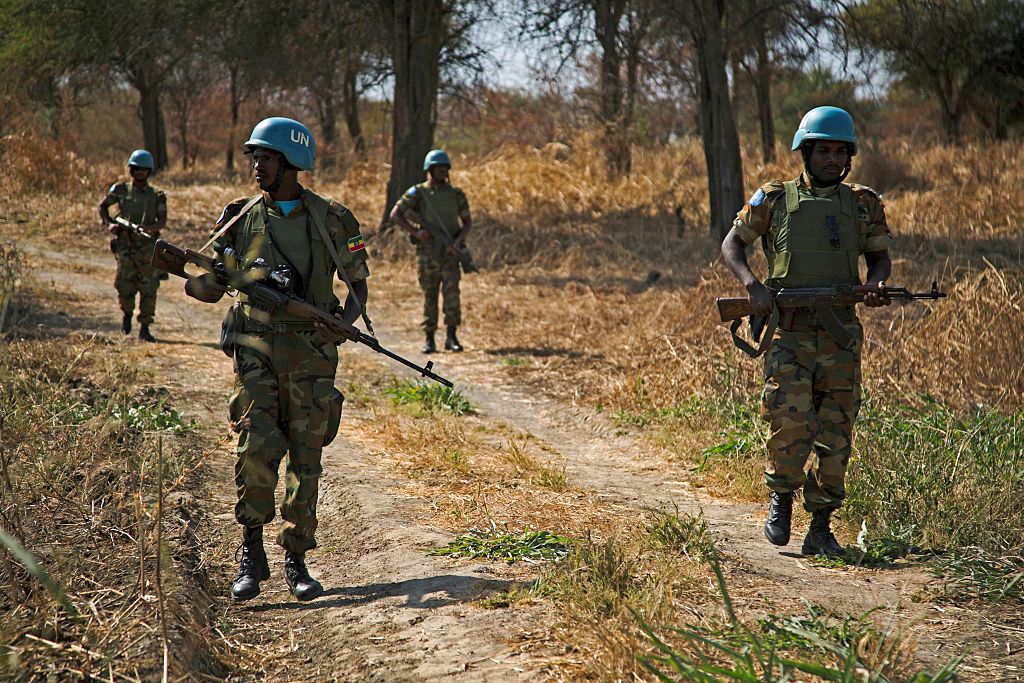Unresolved Status of Abyei Region Contributes to Bouts of Violence
ADF STAFF
Recent interethnic fighting in the disputed Abyei Administrative Area between Sudan and South Sudan is the latest complication in the already complex effort to resolve the region’s status — an effort that is being sidetracked by the conflict in Sudan.
An attack on two communities within Abyei on November 20 left dozens dead and a leader of the South Sudan People’s Defence Forces (SSPDF) defending his Soldiers against claims they participated in the attack.
The attack was preceded by fighting on November 13 between the Twic and Ngok factions of the Dinka ethnic group that included an attack by Ngok members on the SSPDF’s Ayok military base, which is home to the Abyei Independent Brigade.
The attack killed seven brigade Soldiers, including the commander. Attackers left the base with some heavy weapons, according to Maj. Gen. Akuei Ajou of the SSPDF’s Third Infantry.
In an interview with South Sudan Global Television (SSGTV), Ajou rebutted claims from an Abyei official that his troops had a role in the November 20 attack. Witnesses said men dressed in SSPDF uniforms took part in the attack.
“What we know is it is youth from Abyei and youth from Twic (County of South Sudan) that are fighting, and we are not part of that war,” Ajou said.
Oil-rich Abyei remains a hotspot in relations between South Sudan and Sudan 12 years after South Sudan gained independence. The region is bounded on the south by South Sudan’s Northern Bahr el-Ghazal, Warrap, and Unity states and on the north by Sudan’s West Kordofan state.
Most of Abyei’s residents are from the Ngok Dinka group. However, Arab Misseriya pastoralists from Sudan live along the northern part of the Kiir River. The Twic Dinka group claims the land south of the Kiir.
The question of who controls Abyei remains unresolved, with the United Nations asking the two countries to administer the region jointly alongside peacekeepers from the U.N. Interim Security Force for Abyei (UNISFA). That arrangement has not prevented repeated eruptions of violence driven by disputes over sharing land and resources.
“Amid failure at the political level to agree on the Abyei boundary demarcation, disagreements over the border issue further fuel violence, with groups accusing one another of encroaching on their land,” researchers with the Armed Conflict Location & Event Data Project (ACLED) wrote in an analysis of Abyei violence published in March 2023.
At the time of that report, dozens of Abyei residents had already died from interethnic violence during the first three months of the year. Some deadly conflicts spilled over into South Sudan.
The task of resolving Abyei’s status has become more complicated since fighting broke out on April 15 between the Sudanese Armed Forces (SAF) and Rapid Support Forces (RSF).
“With the conflict in Sudan, the conditions are not conducive for talks on the final status of Abyei,” Hanna Serwaa Tetteh, special envoy of the U.N. secretary-general for the Horn of Africa, told the Security Council in early November.
“Key Sudanese and South Sudanese leaders have not expressed the desire to engage on these topics,” she added.
The situation in Abyei could become even more strained at RSF fighters move into West Kordofan, Tetteh reported.
Recent violence was part of a long-running series of attacks among the three ethnic groups claiming Abyei, with much of the violence directed at civilians. In 2022, ACLED recorded 48 attacks in Abyei, a total higher than the three previous years combined.
In response to escalating interethnic violence in Abyei, South Sudan established a buffer zone on its side of Abyei in May 2022. It sent troops into Abyei a few months later after interethnic fighting broke out again.
Ajou told SSGTV that his Soldiers are in Abyei to protect civilians and guard travel corridors, not to choose sides in interethnic fights.
“I cannot make revenge because I am the commander of this country,” Ajou said. “I’m not the commander of the tribe.”


Comments are closed.